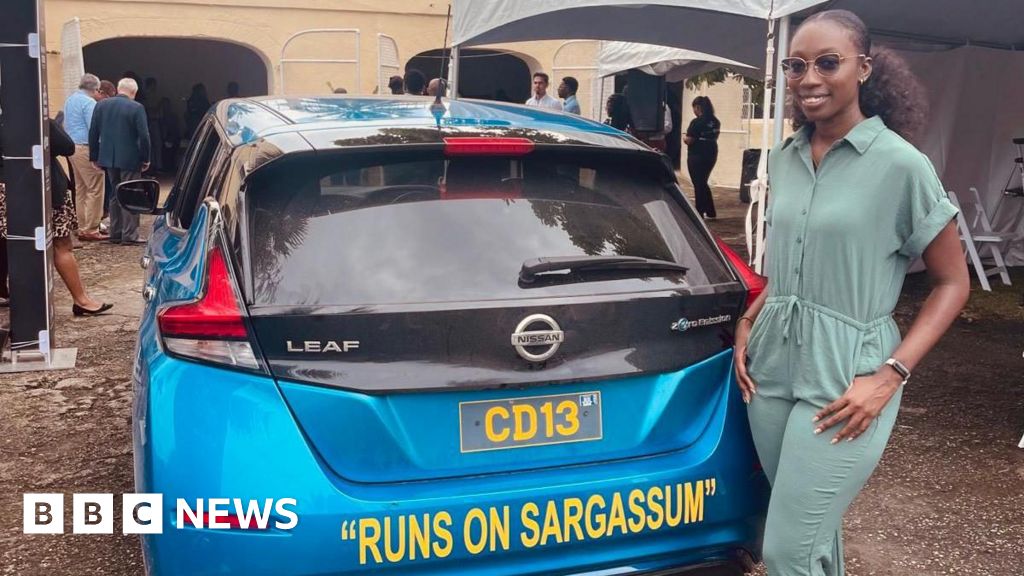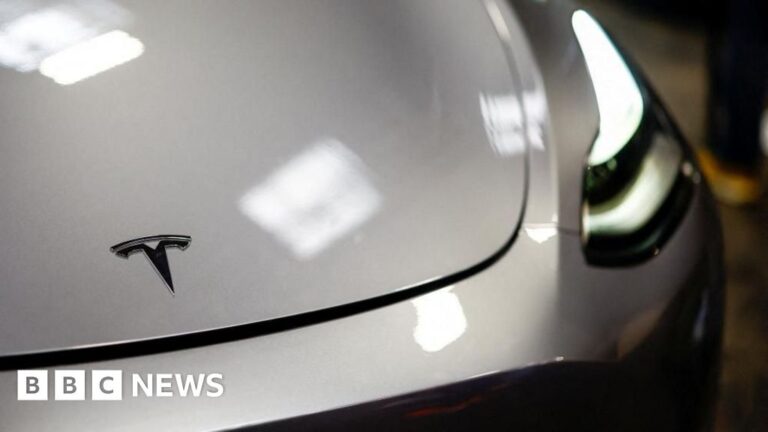Here is the plain text result:
When large swathes of invasive seaweed started washing up on Caribbean beaches in 2011, local residents were perplexed. Soon, mounds of unsightly sargassum – carried by currents from the Sargasso Sea and linked to climate change – were carpeting the region’s prized coastlines, repelling holidaymakers with the pungent stench emitted as it rots.
Precisely how to tackle it was a dilemma of unprecedented proportions for the tiny tourism-reliant islands with limited resources. In 2018, Barbados’ Prime Minister Mia Mottley declared sargassum a national emergency.
Now, a pioneering group of Caribbean scientists and environmentalists hope to turn the tide on the problem by transforming the troublesome algae into a lucrative biofuel. They recently launched one of the world’s first vehicles powered by bio-compressed natural gas. The innovative fuel source created at the University of the West Indies (UWI) in Barbados also uses wastewater from local rum distilleries, and dung from the island’s indigenous blackbelly sheep which provides the vital anaerobic bacteria.
The team says any car can be converted to run on the gas via a simple and affordable four-hour installation process, using an easily available kit, at a total cost of around $2,500 (£1,940).
Researchers had initially looked into using sugarcane to reduce reliance on costly, imported fossil fuels and help steer the Caribbean towards its ultimate target of zero emissions. However, despite Barbados being one of few islands still producing sugarcane, the quantity was deemed insufficient for the team’s ambitious goals, explains the project’s founder Dr Legena Henry.
Sargassum on the other hand, she grimaces, is something “we will never run out of”. Tourism has suffered a lot from the seaweed; hotels have been spending millions on tackling it. It’s caused a crisis.
The idea that it could have a valuable purpose was suggested by one of her students, Brittney McKenzie, who had observed the volume of trucks being deployed to transport sargassum from Barbados’ beaches.
Water pollution and warming seas are credited with the upsurge in sargassum, another cataclysmic result of climate change that the Caribbean has done little to contribute to but often bears the brunt of. Calls for eco reparations from leaders including Barbados’ leader Mia Mottley and Antigua’s Prime Minister Gaston Browne have been clamorous in recent years as the region battles ever-rising sea levels and worsening storms.
While waiting for those to bear fruit, this project represents one example of the Caribbean taking its environmental future into its own hands. “I realised it was important that after removing the sargassum from beaches, it doesn’t just go to landfills,” Ms Spencer continues. “By repurposing it in vehicles you protect tourism and prevent people from inhaling it. When we scale up to fuel more vehicles it will require a very large volume.”
Watching the successful test drive of a biogas-charged Nissan Leaf – supplied by the Caribbean Centre for Renewable Energy and Energy Efficiency – was utterly exhilarating, smiles Dr Henry. The MIT-educated mechanical engineer knew she was risking her reputation should the venture fail.
As for Brittney, five years after her eureka moment, she says she’s still “pinching” herself. “To see the car in action was mind-blowing,” she grins. “I would encourage all young scientists to press ahead with their ideas. You never know when you might make the next big discovery.”
Source link




